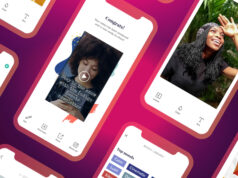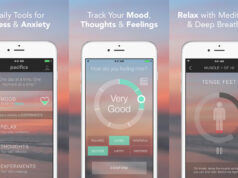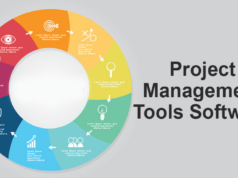Amazing 7 Language Learning Apps That Conquer All Levels
Related Articles: Amazing 7 Language Learning Apps That Conquer All Levels
- Essential 7 Video Editing Tools Every Filmmaker Must Master
- Amazing 5 Budgeting Apps To Master Your Finances
- Amazingly Powerful: 5 Top Graphic Design Software Choices For Beginners
- Essential Antivirus: 5 Crucial Factors For Choosing The Best Protection
- 5 Amazing Note-Taking Apps To Supercharge Your Productivity
Introduction
In this auspicious occasion, we are delighted to delve into the intriguing topic related to Amazing 7 Language Learning Apps That Conquer All Levels. Let’s weave interesting information and offer fresh perspectives to the readers.
Table of Content
Amazing 7 Language Learning Apps That Conquer All Levels

Learning a new language can feel like scaling Mount Everest – a daunting task that seems insurmountable at first glance. But with the right tools and the right approach, conquering this linguistic peak becomes significantly more achievable. The digital age has gifted us with a plethora of language learning apps, catering to every level, from absolute beginner to fluent speaker. This article explores seven amazing apps that offer effective and engaging ways to learn, regardless of your current proficiency. We’ll delve into their features, strengths, and weaknesses, helping you choose the perfect app to embark on your language learning journey.
1. Duolingo: The Gamified Gateway to Language Acquisition
Duolingo is arguably the most recognizable name in the language learning app world. Its gamified approach, with points, streaks, and leaderboards, keeps users motivated and engaged. The app uses a spaced repetition system (SRS), presenting you with vocabulary and grammar concepts at increasingly longer intervals to solidify your learning. Duolingo’s strength lies in its accessibility. It’s free (with a paid subscription option for ad-free learning and extra features), offers a wide range of languages, and provides a solid foundation for beginners.
- Strengths: Free, gamified learning, wide language selection, good for beginners, user-friendly interface.
- Weaknesses: Can become repetitive, lacks depth in grammar explanations, focuses primarily on vocabulary and basic sentence structures, sometimes inaccurate translations. The free version is ad-supported.
2. Babbel: A Structured Approach to Language Mastery
Babbel takes a more structured approach to language learning than Duolingo. While it incorporates some gamification, it prioritizes a systematic curriculum that gradually introduces new vocabulary and grammar concepts. Babbel’s lessons are designed by language experts, providing a more academically rigorous experience. The app emphasizes practical conversational skills, using realistic scenarios and dialogues to prepare learners for real-world interactions.
- Strengths: Structured curriculum, focuses on practical conversational skills, high-quality lessons designed by linguists, good for intermediate learners.
- Weaknesses: More expensive than Duolingo, less gamified, fewer languages offered compared to Duolingo, less focus on cultural aspects of the language.
3. Memrise: Harnessing the Power of Mnemonics and Community

Memrise distinguishes itself by incorporating mnemonics and user-generated content into its learning system. The app uses flashcards and memorable images to help users retain vocabulary, and its community features allow users to share their own learning materials and contribute to the app’s content. This collaborative aspect adds a unique dimension to the learning experience. Memrise is particularly effective for vocabulary acquisition.
- Strengths: Unique mnemonic techniques, strong community features, effective for vocabulary building, user-generated content adds variety.
- Weaknesses: Grammar instruction can be less comprehensive than other apps, reliance on user-generated content can lead to inconsistencies in quality, less focus on conversational skills.
4. Rosetta Stone: Immersive Learning for a Deeper Understanding
Rosetta Stone takes a more immersive approach to language learning, minimizing the use of the learner’s native language. The app focuses on building vocabulary and grammar through visual association and context. This method is designed to simulate the process of acquiring a language naturally, without explicit grammar explanations. Rosetta Stone is particularly effective for developing intuitive understanding of the language.
- Strengths: Immersive learning environment, strong focus on listening and speaking skills, effective for developing intuitive understanding of the language.
- Weaknesses: Can be challenging for beginners, lacks explicit grammar explanations, expensive, limited interaction with instructors or other learners.
5. Drops: Microsession Mastery for Busy Learners
Drops is designed for learners with limited time. The app offers short, five-minute lessons that focus on vocabulary acquisition through visually engaging flashcards and games. It’s a great option for those who want to incorporate language learning into their daily routines without committing large blocks of time. Drops is excellent for building vocabulary quickly.

- Strengths: Short, focused lessons, ideal for busy learners, visually appealing, effective for vocabulary building.
- Weaknesses: Limited grammar instruction, primarily focuses on vocabulary, lacks conversational practice, not suitable for in-depth language learning.
6. HelloTalk: Connecting with Native Speakers for Real-World Practice
HelloTalk stands out by connecting learners with native speakers of the target language. The app allows users to engage in text, voice, and video chats, providing opportunities for real-world communication practice. This interactive aspect is invaluable for improving fluency and pronunciation. HelloTalk is particularly useful for practicing conversational skills and getting personalized feedback.
- Strengths: Connects learners with native speakers, facilitates real-world communication practice, opportunities for personalized feedback, improves fluency and pronunciation.
- Weaknesses: Relies heavily on user interaction, quality of interaction can vary, less structured learning, may not be suitable for beginners who lack basic vocabulary.
7. Lingodeer: A Comprehensive Approach with Detailed Explanations
Lingodeer provides a comprehensive approach to language learning, combining vocabulary acquisition with detailed grammar explanations. The app uses a progressive learning system, gradually introducing new concepts and building upon previously learned material. It’s a great option for those who prefer a more structured and academically rigorous approach.
- Strengths: Comprehensive curriculum, detailed grammar explanations, structured learning path, good for those who prefer a more formal approach.
- Weaknesses: Can be less engaging than gamified apps, less emphasis on conversational practice, might feel overwhelming for some learners.
Choosing the Right App for Your Needs:
The best language learning app for you will depend on your learning style, your current proficiency level, and your learning goals. Beginners might benefit from gamified apps like Duolingo or structured approaches like Babbel. Intermediate learners might appreciate the immersive experience of Rosetta Stone or the conversational focus of HelloTalk. Advanced learners might find Lingodeer’s comprehensive approach or Memrise’s community features beneficial. Consider your personal preferences and experiment with different apps to find the one that best suits your needs. Remember that consistency and active engagement are key to success in language learning, regardless of the app you choose. Supplementing app-based learning with other resources, such as language exchange partners, textbooks, or immersion experiences, can further enhance your progress. The journey to language fluency is a marathon, not a sprint, so be patient, persistent, and enjoy the process of discovering a new language and culture.
Closure
Thus, we hope this article has provided valuable insights into Amazing 7 Language Learning Apps That Conquer All Levels. We hope you find this article informative and beneficial. See you in our next article!
google.com








